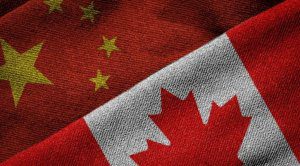 The federal government has broken off the 5G relationship with Huawei for very good national security reasons, but doesn’t want to incur Beijing’s wrath by saying that straight out, writes Charles Burton in the Ottawa Citizen.
The federal government has broken off the 5G relationship with Huawei for very good national security reasons, but doesn’t want to incur Beijing’s wrath by saying that straight out, writes Charles Burton in the Ottawa Citizen.
By Charles Burton, November 20, 2020
With Global Affairs Minister François-Philippe Champagne scheduled to give evidence Monday to the House of Commons Special Committee on Canada-China relations, expect a lot of hemming and hawing over why he voted against an Opposition motion for Canada to announce a decision on Huawei 5G before Christmas.
He’ll also have to explain why Canada has not undertaken effective measures to stop covert, coercive activities by Chinese agents who seek to influence Canadian policymakers and intimidate human rights defenders in Canada’s Uighur and Tibetan communities, pro-democracy activists, campaigners for freedom in Hong Kong or practitioners of Falun Gong. Canada’s policy on this so far has been akin to the “ghosting” (that is, withdrawing without explanation) of a discarded romantic partner. Canada has broken off the 5G relationship with Huawei for very good national security reasons, but doesn’t want to incur Beijing’s wrath by telling them straight out.
In 2018, China declared itself a “near-Arctic state” and called for a “Polar Silk Road” to not only expedite shipping through our Arctic waters, but develop ports, infrastructure, military presence and extract resources in Canada’s North. The carrot for Canada would ostensibly be huge Chinese state investment and developmental benefits, but this is all simply part of Chinese leader Xi Jinping’s strategy to displace the United States as the world’s dominant political and economic power by 2050, which will be the 100th anniversary of China’s People’s Republic.
This is all consistent with the PRC’s strong insistence that Canada not only allow Huawei free rein over our telecommunications framework, but that Canada cease its “discriminatory” security review process over any PRC acquisitions of critical Canadian natural resources and infrastructure.
Little wonder that Beijing clearly perceives that holding Kovrig and Spavor is working out well, keeping Canada from retaliating for China’s flouting of accepted norms of international diplomacy and trade. It’s time Canada did the right things: ceasing to turn a blind eye to China’s money diplomacy meant to influence Canadian policymakers; adopting zero tolerance of Chinese state harassment of people in Canada; sanctioning Chinese officials who have wealth invested here and are complicit in the Uighur genocide; offering safe harbour to all Hong Kongers at risk of arrest under the PRC’s draconian National Security Law; and stringently inspecting all Chinese shipments into Canada to stem the flow of fentanyl.
Ghosting has not worked in this relationship. It is time to make clear our Canadian intentions.
Charles Burton is a senior fellow at the Macdonald-Laurier Institute in Ottawa, and non-resident senior fellow of the European Values Center for Security Policy in Prague.




